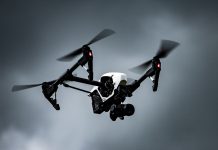- Aircraft will be made “entirely of a special transient glass material”
PARC, a Xerox company announced today that it has received funding from the Defense Advanced Research Projects Agency (DARPA) under its ICARUS program.
The ICARUS program (for Inbound, Controlled, Air‐Releasable, Unrecoverable Systems) seeks to develop a prototype air vehicle capable of autonomously delivering small payloads to targeted locations, and then vanishing once it has completed its mission, according to PARC.
PARC, in collaboration with AeroVironment Inc., aims to develop the specialized materials and autonomous air delivery system that can be made to vanish under a project within ICARUS known as ONLY-DUST (On-Target Delivery and Disintegration Upon Stress-release Trigger).
The goal of the project is to develop complex structures that are extremely stable during storage and flight, while still allowing reliable on-demand transience, said PARC.
The project represents the extension of PARC’s transient device technology into the structural realm. Previous work demonstrated the transient glass material as a substrate for electronic devices – chips, sensors and other electronics – that allows the electronics to be rapidly and remotely disintegrated on command, leaving small, dispersed particles, invisible to the human eye
This Disintegration Upon Stress-release Trigger, or DUST, technology was developed under a prior DARPA program, leveraging PARC’s deep expertise in complex material modeling and fabrication process development. With ICARUS, the breadth of applications for the transient device technology is moving from electronics to complex structures of virtually any form.
By collaborating with AeroVironment Inc., the leader in small, unmanned aerial vehicles, the demonstration system may potentially be rapidly scaled for DoD applications.
The key enabling technology is a highly engineered glass material with controlled stress profiles and embedded elements that make it structurally robust, but capable of instantaneously fracturing into grains too small to be visible under normal conditions.
“Through our DUST research and now ICARUS, we are building the capability to deploy transient materials for a wide variety of applications,” said Ross Bringans, Director of PARC’s Electronic Materials and Devices Lab. “It is fun to imagine devices and systems that can perform real-world functions for as long as you want them to and then literally disappear. We’re envisioning initial products for personal data security and environmentally friendly distributed sensors, with more to come.”
“This project hopes to demonstrate an aircraft made entirely of a special transient glass material,” said Scott Limb, PARC researcher and principal investigator for the ONLY-DUST project. “Material transience occurs when it becomes unstable. The challenge has been to find an extremely stable material under a wide set of conditions that can instantaneously vanish, but only when commanded.”







